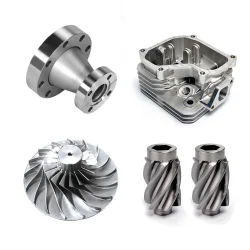Understanding Motorcycle Engine Parts: The Heart of Your Bike
2024-08-12
When it comes to motorcycles, the engine is often considered the heart of the machine. Understanding the key components of your motorcycle engine can help you appreciate the intricate engineering that powers your ride and might even assist you in performing basic maintenance or troubleshooting.
1. The Cylinder
The cylinder is one of the core components of your motorcycle's engine. It’s where the combustion process takes place, which is responsible for generating the power that propels your bike forward. Motorcycles can have one to six cylinders, with different configurations like single, parallel-twin, V-twin, inline-four, and more. Each configuration has its unique characteristics affecting the bike’s performance and sound.
2. Pistons and Piston Rings
Inside each cylinder, you'll find a piston. The piston's job is to transfer the energy generated by the combustion of fuel and air into mechanical motion. The piston rings ensure that the combustion chamber remains sealed, preventing the oil from entering the combustion chamber and the combustion gases from escaping.
3. Crankshaft
The crankshaft converts the up-and-down motion of the pistons into rotational motion, which ultimately drives the wheels of the motorcycle. The crankshaft's design and quality play a significant role in the smoothness and power delivery of the engine.
4. Camshaft
The camshaft controls the opening and closing of the engine’s valves, timing the intake of air and fuel and the expulsion of exhaust gases. Some engines use a single camshaft, while others use dual camshafts to optimize valve timing and improve engine performance.
5. Valves
The intake and exhaust valves are crucial in managing the airflow into and out of the engine's cylinders. Properly functioning valves are essential for maintaining engine efficiency and power. They work in perfect synchronization with the camshaft to ensure optimal performance.
Maintaining Your Engine
Regular maintenance of these parts is critical to the longevity and performance of your motorcycle. Regular oil changes, checking valve clearances, and ensuring proper fuel and air mixture can keep your engine running smoothly for years.
Understanding these key engine components not only enhances your appreciation of the engineering marvel that is your motorcycle but also empowers you to take better care of it. The more you know about how your engine works, the more confident you’ll be on the road.



